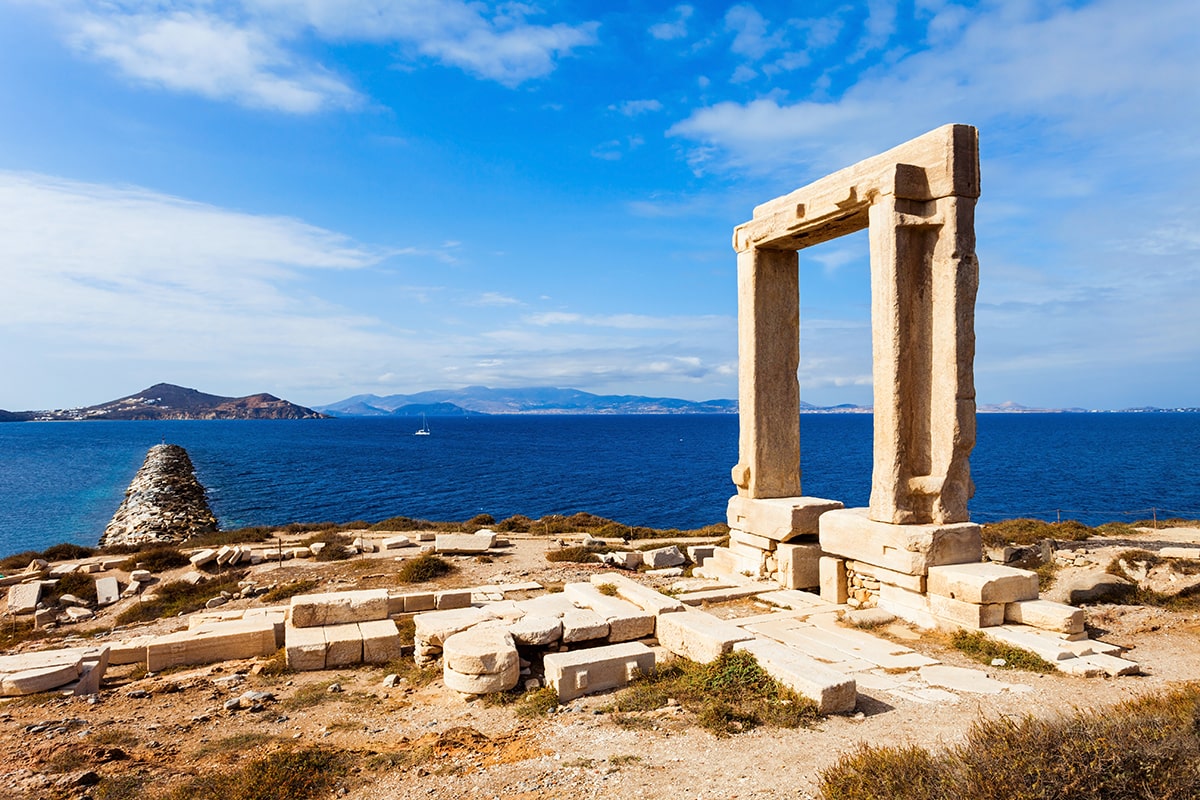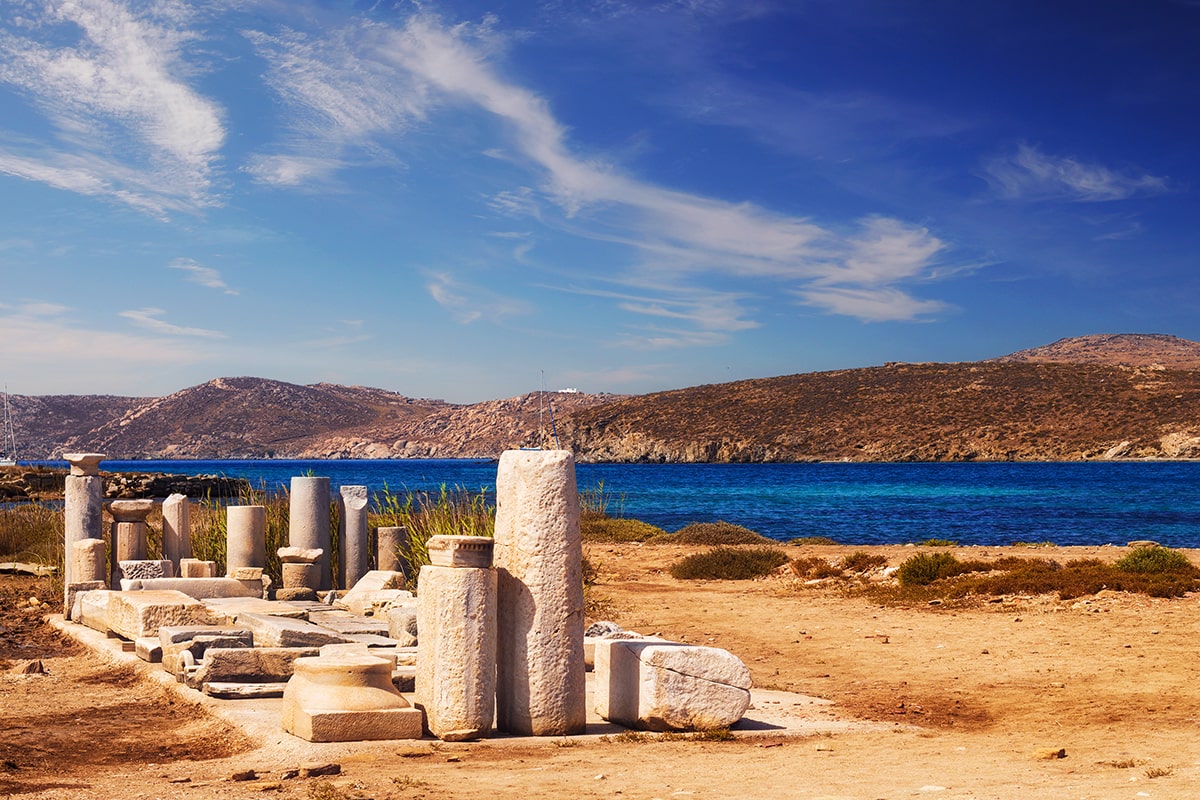Key Takeaways:
- Ancient Greece is heralded as the birthplace of Western civilization with significant contributions in various fields.
- Greek mythology has shaped art, literature, and the collective consciousness with its array of deities and epic narratives.
- Greek civilization offers a window into ancient social structures, economies, and daily life.
- Hellenic culture highly influenced education, philosophy, language, and the arts.
- Understanding Greek antiquity is key to comprehending the historical development and integration of this civilization with others around the Mediterranean.
Table of Contents
- Ancient Greece
- Greek Mythology
- Greek Civilization
- Hellenic Culture
- Greek Antiquity
Ancient Greece
At the crossroads between East and West, the region known today as Greece was home to the Minoan and Mycenaean civilizations, the earliest forerunners of the classical Greek culture. Through a complex interplay of trade, warfare, and cross-pollination of ideas, these civilizations laid the foundation for what would eventually become the cornerstone of Western ideologies, politics, and philosophies.
Greek Mythology
Rich with powerful deities, heroic mortals, and timeless adventures, Greek mythology has played a pivotal role in shaping the cultural and literary paradigms of Western society. The epic tales detailed in poems and the depictions of gods and goddesses in art are as much a significant historical record as they are marvelous storytelling devices.
Greek Civilization
Exploring Greek civilization involves understanding the nuances of their daily life, from the Agora where they conducted trade and political discourse, to their advancements in technology and maritime prowess. The social hierarchy of ancient Greece, although significantly different from modern norms, provides a perspective into the lives and roles of different classes and genders.
Hellenic Culture
The Hellenic period was marked by an outpouring of intellectual and artistic expression that has scarcely been matched in human history. Language and literature flourished, set against the backdrop of the genesis of Western philosophy with figures such as Socrates, Plato, and Aristotle who transformed the way humans perceived themselves and the universe.
Greek Antiquity
Greek antiquity is marked by dynasties, wars, and the rise and fall of city-states. It was a period that saw the consolidation of a Grecian identity and significant feats of engineering and cultural achievements. The Greeks’ interactions with their neighbors led to the creation of a rich and diverse cultural tapestry.
Introduction
Ancient Greece casts a long shadow over the annals of history, its legacy persisting into the modern day in myriad ways. Democracy, philosophy, literature, and art—the Greeks excelled in these fields and many others, effectively setting the stage for Western civilization. Theirs was a world of towering intellects and indomitable warriors, of pioneering artists and immortal gods.
This article explores the rich tapestry of Ancient Greek history, unraveling its many layers to better understand the profound impact it has had on the development of human thought and societies. From the labyrinthine myths and legends of deities who controlled every facet of the natural world, to the complex social structures and political innovations that have informed contemporary governance—every aspect represents a piece of a historical puzzle that has contributed to the construction of modern Western identity.
Embarking on this historical journey provides invaluable insights into human progress and the collective intellectual heritage that we share. By examining the various components of Ancient Greek history, from its earliest civilizations to its lasting cultural products, we create a dialogue with the past, allowing us to reflect on our present and perhaps even glimpse the path into our future.
Ancient Greece’s influence on Western civilization cannot be overstated. Its contributions to various fields such as philosophy, art, architecture, and politics remain integral to contemporary society. Delving deeper into the core elements that shaped the Western world provides insight into how the ideas of a few shaped the lives of many, even millennia later.
Philosophical Foundations
The groundwork of Western philosophy is credited to the pioneering thoughts of Greek philosophers. Socrates, with his Socratic method, encouraged critical thinking and questioning. Plato founded the Academy and contributed to metaphysics and ethics, while Aristotle’s comprehensive works influenced logic, natural sciences, and politics.
- Philosopher
- Socrates
- Plato
- Aristotle
- Contributions
- Ethical philosophy, Socratic Method
- Theory of Forms, Platonic idealism
- Virtue ethics, foundations of logic and biology
Democratic Ideals
Greek democracy, particularly the Athenian model, was a radical innovation. Although not democratic by modern standards, it introduced the concept of citizens having a direct role in governance. The idea that a state’s citizens could participate in decision-making was revolutionary and laid the conceptual groundwork for modern democratic systems.
- Aspect of Democracy
- Civic Participation
- Legal Equality
- Political Accountability
- Greek Model
- Citizen assembly and voting
- Rights to speak in assembly
- Ostracism of tyrants
- Modern Influence
- Rights to vote and run for office
- Equal protection under law
- Impeachment procedures
Artistic and Architectural Marvels
The aesthetic of Greek art and architecture, characterized by harmony, proportion, and balance, has survived centuries. Temples like the Parthenon, statues like Venus de Milo, and dramatic works like those of Sophocles form the bedrock of Western artistic values.
Table of Architectural Influence
- Greek Architecture
- Doric Order
- Ionic Order
- Corinthian Order
- Features
- Sturdy columns without bases, plain capital
- Scrolls on column capitals, base support
- Ornate capitals with acanthus leavesPristine waters and tropical climates
- Modern Adaptation
- Utilized in Western government buildings
- Influential in academic and cultural buildings
- Inspiration for modern luxury edifices
War and Military Tactics
Greek warfare, epitomized by the city-states of Athens and Sparta, showcased strategic military evolutions such as the phalanx formation. Greek military tactics are studied in military academies worldwide for their historical significance in shaping warfare.
Hellenistic Achievements
The Hellenistic period marked Greek culture’s expansion across Asia and Africa. Alexander the Great’s conquests not only spread Hellenic culture but also encouraged the fusion of Eastern and Greek traditions, leading to advancements in science, arts, and philosophy.
Conclusion
Ancient Greece’s layered contributions have undoubtedly sculpted the ethos of Western civilization. Its philosophies encourage critical thought, its political systems advocate participation, and its cultural achievements guide contemporary aesthetics. As a tribute to this magnificent heritage, various archaeological sites dotting modern Greece wait to be explored, with the Acropolis, Delphi, and Olympia being pivotal to our understanding of this civilization’s grandeur. Through rigorous examination of Ancient Greece, we continue to uncover the magnitude of its influence, making it a perpetual subject of fascination and respect in the annals of human history.
Ancient Greece’s indelible imprint on Western civilization is pervasive and enduring. From the cradle of democracy in Athens to the philosophical inquiries in the vibrant academies and agoras, Greeks laid the foundations that have underpinned much of modern thinking, governance, art, and culture. Their exploration and valorization of human potential, in the face of the divine and natural worlds, spurred cultural dynamics that would shape human history. The marvel of Greek architecture, the depth of Greek literature, the precision of Hellenic warfare, and the spirited dialogue of Greek philosophy continue to enrich contemporary life. The archaeological remains remind us of the rich heritage that has been the bedrock for contemporary civilization, with sites such as the Acropolis and Delphi connecting the past with the present. The legacy of Ancient Greece serves not only as a cornerstone of historical understanding but as an eternal fountain of inspiration, reminding us that the quest for knowledge and beauty is a timeless human endeavor.
Frequently Asked Questions (FAQ)
Q: Why is Ancient Greece considered the birthplace of Western civilization?
A: Ancient Greece is often referred to as the birthplace of Western civilization due to its seminal contributions to fields such as philosophy, science, arts, politics, and the establishment of democratic principles, all of which have played a crucial role in shaping modern Western culture.
Q: What are some major contributions of Greek philosophers?
A: Greek philosophers like Socrates, Plato, and Aristotle laid the groundwork for Western thought with contributions that ranged from the development of the Socratic method to the establishment of ethical frameworks, theories of forms and reality, and systematic approaches in logic, ethics, and natural sciences.
Q: How does Ancient Greek democracy differ from modern democracy?
A: Ancient Greek democracy, especially the Athenian model, was the precursor to modern democracy but differed in many ways. It was direct, with citizens actively participating in decision-making, compared to the representative democracies common today. Also, it excluded women, slaves, and non-citizens from political participation, whereas modern democracies typically involve a broader franchise and are inclusive of all adult citizens.
Q: How has Greek architecture influenced modern architecture?
A: Greek architectural elements such as the Doric, Ionic, and Corinthian orders have influenced the design of modern public buildings, universities, and cultural institutions. The aesthetic concepts of harmony, proportion, and balance that governed Greek architecture continue to be a source of inspiration.
Q: What significance do the archaeological sites in Greece hold?
A: Archaeological sites in Greece offer crucial insights into Greek history, culture, and daily life. They are monumental reminders of the civilization’s technological, artistic, and philosophical achievements. They serve educational purposes and as popular tourist destinations, providing visitors with a tangible link to the past.
Key Takeaways
- Historical Significance: Ancient Greece heralded numerous socio-cultural and political revolutions that became the backbone of Western civilization.
- Philosophical Prowess: Greek philosophy laid the philosophical foundations for critical thinking and ethics that still resonate today.
- Political Innovations: The concept of democracy, despite its ancient limitations, introduced groundbreaking ideas about governance and civic participation that inform modern political systems.
- Cultural Heritage: Greek art and architecture, with their emphasis on form, symmetry, and aesthetics, set standards that remain influential in contemporary art and design.
- Military Strategies: Greek military prowess and strategic thinking contributed to the evolution of warfare, leaving behind tactics that are still studied and revered.
- Hellenistic Period: The spread of Greek culture during the Hellenistic period was instrumental in the cross-cultural exchange, resulting in significant advancements across the known world.






